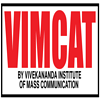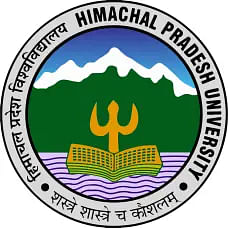
Table of Contents
The IIMC (Indian Institute of Mass Communication) Entrance Exam is a national-level test for admission to postgraduate diploma programs in mass communication and journalism. The exam evaluates a candidate's knowledge and aptitude in relevant areas of mass communication, writing, and current affairs.
This exam serves as a way for specialized courses in radio, television, journalism, and other related areas. IIMC exam not only caters to academic preparedness but also gauges the creative and critical thinking skills necessary for a successful career in media.
IIMC Exam Entrance Syallbus is a structured format that evaluates a candidate's aptitude and skills for a career in media. The syllabus is designed comprehensively to ensure a complete analysis of the student's inclination towards the subject and possession of creative capabilities required for the media field.
IIMC Entrance Exam Syllabus 2024/2025 Highlights
The Indian Institute of Mass Communication (IIMC) Entrance Exam 2024 is conducted for admission to postgraduate diploma programs in various fields of mass communication and journalism. Below are the key details for the IIMC Entrance Exam 2024:
|
Feature |
Description |
|
Exam Name |
IIMC Entrance Exam 2024 |
|
Conducting Body |
Indian Insititute of Mass Communication |
|
Courses Offered |
PG Diploma in Journalism (English/Hindi), Advertising and Public Relations, and Digital Media |
|
Exam Mode |
Online (CBT) |
|
Number of Sections |
4 (Language Skills, General Awareness, Analytical and Comprehension Skills, Media Aptitude) |
|
Exam Duration |
2 Hours |
|
Medium of Exam |
English and Hindi (based on course selection) |
|
Marking Scheme |
No Negative marking |
|
Application Mode |
Online |
|
Eligibility Criteria |
Bachelor’s degree from a recognized university |
IIMC Entrance Exam: Section-Wise Pattern
Candidates can check the section-wise pattern for the IIMC exam below.
1. Language Skills
- Objective: To evaluate grammar, vocabulary, and writing ability.
- Format: Includes multiple-choice questions, short answer-type questions, and essay writing.
- Focus Areas: Sentence correction, reading comprehension, vocabulary, and translation (for Hindi Journalism).
2. General Awareness
- Objective: Test a candidate's knowledge of current events and general awareness.
- Format: Objective-type questions.
- Focus Areas: Current affairs (national and international), media history, social and political issues.
3. Analytical and Comprehension Skills
- Objective: To assess logical thinking and comprehension abilities.
- Format: Objective and short-answer questions.
- Focus Areas: Data interpretation, puzzles, reading passages, and critical thinking questions.
4. Media Aptitude
- Objective: To evaluate understanding of media trends and concepts.
- Format: Subjective questions, including essays and case studies.
- Focus Areas: Media ethics, communication theories, media-related policies, and innovations in journalism.
IIMC Exam Entrance Syllabus 2024/2025
Candidates can check the IIMC exam entrance syllabus below.
1. Language Skills
This section evaluates a candidate's ability to write, understand, and analyse language effectively.
- Topics Covered:
- Grammar and sentence correction.
- Vocabulary: Synonyms, antonyms, idioms, and phrases.
- Reading comprehension and analysis of passages.
- Essay writing on current affairs, media-related topics, or social issues.
- Translation (for Hindi Journalism): From Hindi to English and vice versa.
2. General Awareness
This section tests a candidate's knowledge of current events, historical contexts, and overall general awareness.
- Topics Covered:
- Current affairs (national and international).
- History of journalism and media in India.
- Political, social, and economic developments.
- Sports, culture, and environment-related issues.
- Major events related to mass communication, media laws, and policies.
3. Analytical and Comprehension Skills
This section assesses critical thinking, reasoning, and comprehension abilities.
- Topics Covered:
- Logical reasoning and problem-solving.
- Data interpretation (tables, graphs, and charts).
- Reading comprehension and answering related questions.
- Analytical thinking through case studies or situational questions.
4. Media Aptitude
This section evaluates the candidate's understanding of mass communication, media ethics, and emerging trends.
- Topics Covered:
- Communication theories (e.g., Shannon-Weaver model, agenda-setting theory).
- Media ethics, freedom of speech, and responsibilities.
- Digital media trends, media convergence, and social media influence.
- Innovations and technologies in journalism and advertising.
- Case studies on media and public relations campaigns.
5. Hindi Journalism-Specific Topics (For Hindi Journalism Program)
This section tests candidates' proficiency in Hindi language journalism.
- Topics Covered:
- Translation from Hindi to English and vice versa.
- Hindi grammar, vocabulary, and sentence formation.
- Media writing in Hindi, including editorial writing and report drafting.
- Analysis of Hindi news and current affairs.
IIMC Entrance Exam Syllabus: Points to Remember
Candidates can check the important points related to the IIMC exam entrance syllabus.
1. Focus on current affairs from the past year as they hold significant weight
The General Awareness section of the IIMC Entrance Exam places significant emphasis on national and international current events. Candidates should stay updated on key developments in politics, economics, social issues, environment, and technology.
2. Practice essay writing to improve your ability to articulate opinions clearly
Essay writing is an essential skill tested in the exam to evaluate a candidate's ability to express thoughts clearly and coherently. To develop a structured writing style, candidates should practice writing essays on diverse topics, such as social issues, current events, and media trends.
3. Understand basic communication theories and media concepts
The media aptitude section requires a strong grasp of communication theories, media history, and fundamental media concepts. Key topics include mass communication models, media ethics, and the role of media in society.
4. For Hindi journalism, ensure strong skills in translation and grammar
For candidates opting for Hindi journalism, translation skills between Hindi and English play a crucial role. This involves effectively conveying meaning without losing the context or tone of the original text.
5. Time management is critical; divide your preparation evenly across all sections
Given the comprehensive nature of the syllabus, effective time management is essential for both preparation and during the exam. Allocate sufficient time to each section based on its weightage and your strengths. For instance, spend more time mastering current affairs and essay writing, as these are high-scoring areas.











